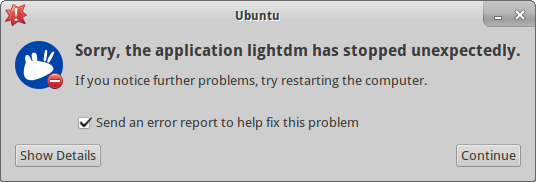Bug Reporting in Xubuntu
Some of the most beneficial contributions one can make to any piece of software is testing and reporting bugs.

A single application may be used in a limitless number of environments, making it impossible for the developers to test each case. In many cases, a user may stumble upon a bug, find a workaround, and move on. In other cases, the user may not have an alternative. How many of these bugs can be prevented?
Ubuntu (and community derivatives such as Xubuntu) follows a 6-month release cycle. LTS (Long Term Support) releases are made every two years (2010, 2012, 2014, 2016, etc) and normal releases fall between. Every release has development milestones (alpha, beta, release candidate), as well as daily development snapshot builds. The best time for testing and reporting bugs is during this development window, when new features are added, libraries are updated, and documentation is refreshed on a daily basis.
For the 15.10 “Wily Werewolf” cycle, the Xubuntu Team has opted to not use pre-written package tests, instead relying on our users’ own test cases and experiences. Normally, reporting bugs for a stable or development version of Xubuntu is a simple task. When using a PPA, as sometimes recommended to test bleeding edge code or new fixes, things can become a bit more difficult. I’ve outlined the steps for each scenario just below the general guidelines.
This guide is inspired by, and reuses some content found in the Ubuntu Community Help Wiki. Check here if you need more in-depth information about bug reporting practices in Ubuntu.
General Bug Reporting Guidelines (Launchpad)
Be sure to include relevant system and package information.
- Which release are you running?
- Are you fully up-to-date?
- What PPAs, if any, are enabled on your system?
- What package version are you using?
apt-cache policy PACKAGENAME
Include steps taken to create the bug.
Is it possible to reproduce the bug?
Include any other relevant information.
For example, if the bug reported is for Parole Media Player:
- What gstreamer packages are installed?
- What audio/video codec does the media file use?
- Which video output plugin is selected?
Add relevant tags to the bug report.
- The ubuntu release name: trusty, vivid, or wily
- If the package is from a PPA, add the ppa tag as well.

Automatic Crash Reporting (without PPAs)

This is, by far, the easiest way to report bugs. When an application crashes, a bug reporting window will pop up. Required information is collected and (with your consent) uploaded to Launchpad. You then update the bug report with any additional information and developers are able to review the bug and request any further details.
Manual Bug Reporting (without PPAs)
When you’re not using PPAs, you can use the ubuntu-bug command:
ubuntu-bug PACKAGENAME
This will open the bug reporting window and collect any relevant crash and system information to upload with the bug report. With your permission, the report is uploaded to Launchpad where you can continue with the next steps.
Manual Bug Reporting (with PPAs)
When you encounter a bug with a package from a PPA, you’ll need to file the bug report manually. Once you’ve got the offending package name, go to
http://bugs.launchpad.net/ubuntu/+source/PACKAGENAME/+filebug
Crash logs can be found in /var/crash/. This directory requires superuser (sudo) permissions to view and extract the contents. These logs can be particularly valuable to include in your bug report, but be sure to review them as they may contain sensitive or personally identifiable material.
Be sure to follow the above general guidelines, and also add the tag ppa so it is clear to developers that this is an unsupported package.
That’s All!
Easy, right? Bug reporting in Ubuntu is not particularly difficult and does not require more than a few minutes of effort. Bugs found early can be addressed in a timely manner and are more likely to make it to a stable release. Go and find some bugs!
If you have any questions, leave a comment here or get in touch with the Xubuntu team through one of the official channels.
